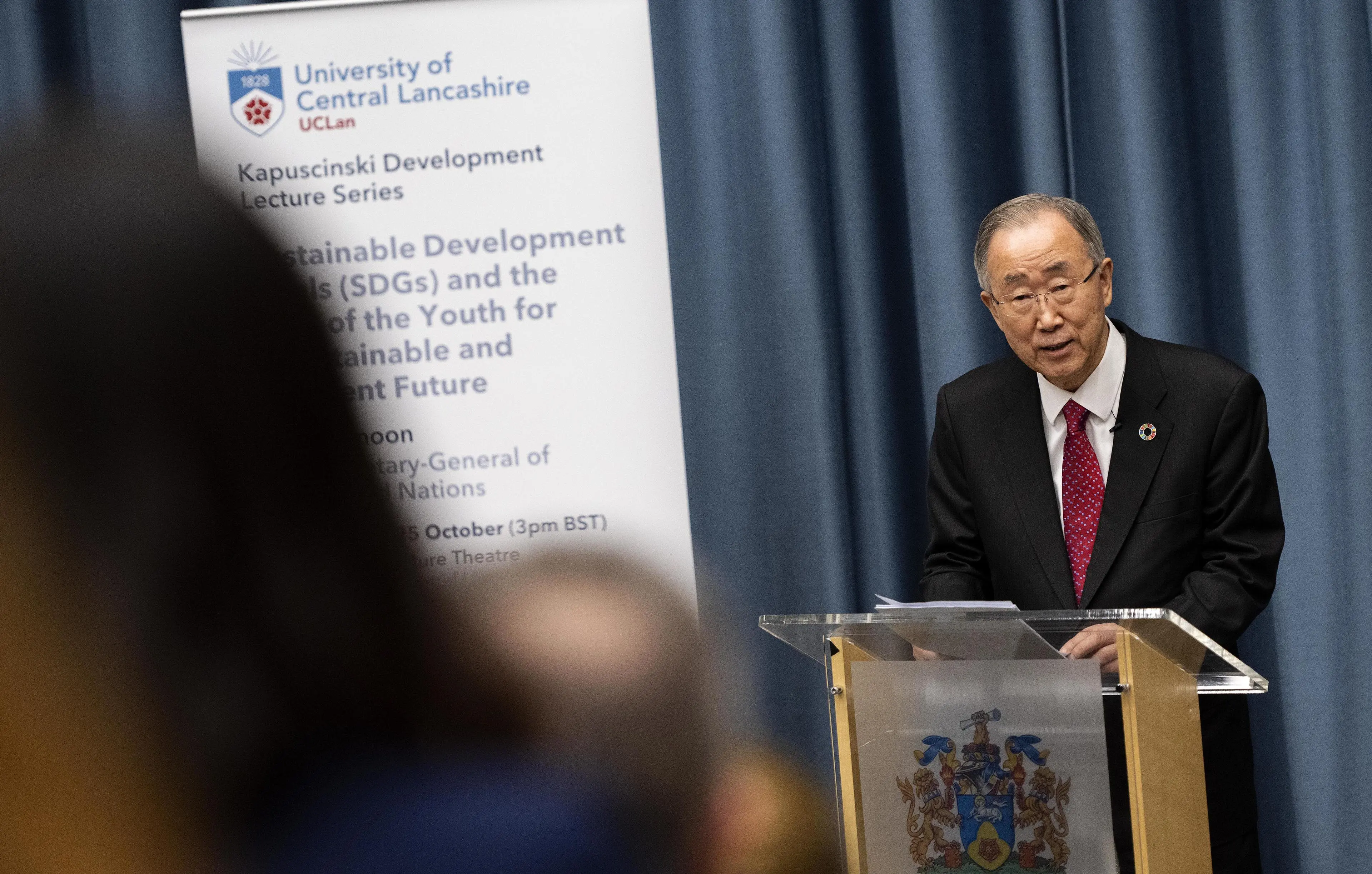Nearly 500 people attend Ban Ki-moon’s passionate lecture about creating a sustainable future
A former Secretary-General of the United Nations (UN) has spoken passionately at the University of Central Lancashire (UCLan) about how the next generation can play their role in building a resilient and sustainable future.
Ban Ki-moon, who was the eighth UN Secretary-General, attracted a sell-out audience of all ages as he delivered his free lecture at UCLan’s Preston Campus today, Wednesday.
During his Kapuscinski Development Lecture, the diplomat, who was at the helm of the UN from 2007 to 2016, explained how students are the next generation of industry leaders and have a vital role to play in society to ensure a sustainable future.
He said: “I was very pleased to visit the very distinguished and historic University of Central Lancashire. It was a great pleasure to meet many university students and exchange views on our common future.
“While working as the Secretary-General of the United Nations, I always emphasised the importance of empowering the youth, including students, who will soon become the leaders of our society....
"It was a great pleasure to meet many university students and exchange views on our common future"
— Ban Ki-moon, former Secretary-General of the United Nations
“These young people will soon be responsible for all important agendas of our society, including climate change, sustainable development goals, poverty, education, gender equality and human rights.
“I was very happy to have an opportunity to discuss all these matters of our common concern which will soon be in their hands.”
Ban is known throughout the world for the work he did during his tenure as the UN Secretary-General, including the adoptions of the 2015 Sustainable Development Goals and the Paris Agreement on Climate Change.
Prior to joining the UN, he was Minister for Foreign Affairs and Trade. Currently, he serves as Chairman of the Ban Ki-moon Foundation for a Better Future, and also works as Chairman of the Global Green Growth Institute.
The lecture series was funded by the European Commission and was a joint initiative between the European Commission, the United Nations Development Programme and UCLan’s Institute for the Study of the Asia Pacific.






